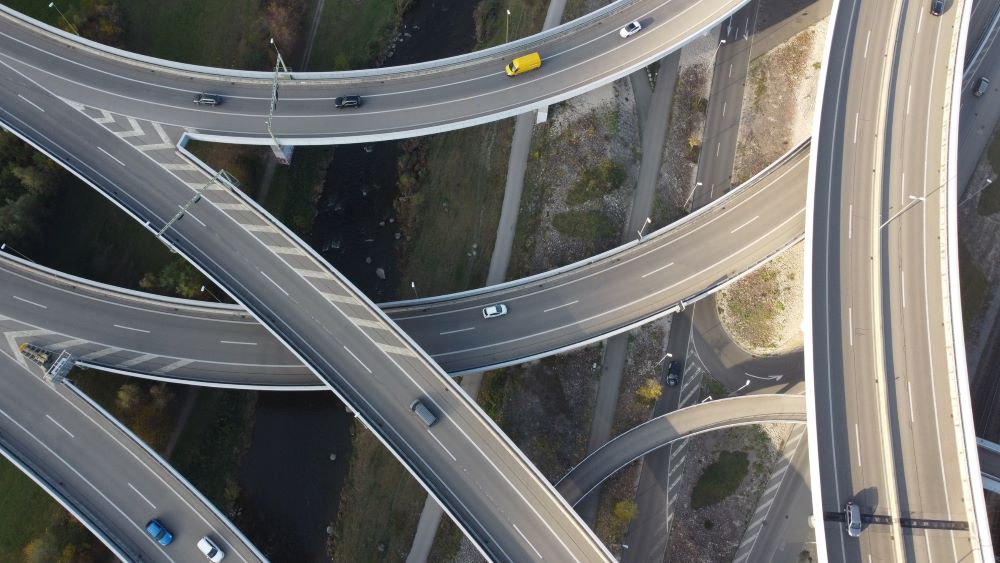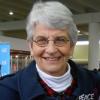
(Unsplash/Patrick Federi)
Twenty years ago, before the Black Lives Matter movement and during a particularly stressful time of caregiving for my aging parents, a counselor advised me to avoid driving freeways. This advice opened me to a slower pace as well as new avenues of conscience and conversion in my hometown of Cleveland, Ohio.
At that time, I was living at our Ursuline motherhouse in Pepper Pike, Ohio, but commuting to work at Women's Re-Entry Network, sponsored by Lutheran Metro Ministry in Cleveland. As a privileged white woman, I was able to choose my route. Instead of speeding past freeway lanes of other cars on 271 North and 90 East, I was now driving more slowly through the suburbs and inner city of my hometown.
The demands of freeway driving focused me on the road; in contrast, the drive through the city of Cleveland's poorest neighborhoods focused me on striking income disparities. According to 2019 U.S. Census figures, median household income in Cleveland is $30, 907, with 32.7% of people at poverty level. These numbers contrast with Pepper Pike's median income of $190,682, with 4.5% of people at the poverty level.
My journey began in Pepper Pike, Ohio, and continued through Cleveland Heights, Ohio, where I drive down beautiful, tree-lined Fairmount Boulevard, listed on the National Register of Historic Places because of its Renaissance, Georgian and Jacobean architecture. Cleveland Heights was developed in 1895 from funding by John D. Rockefeller and was the site of the John L. Severance mansion. Severance was the first treasurer of Standard Oil, president of the Cleveland Museum of Art and a founder of the Cleveland Orchestra.
Advertisement
From Fairmount Boulevard, I drive over to South Woodland, another lovely urban, tree-lined boulevard on my way to Shaker Square, where the landscape changes. In a few short minutes, I am in the "inner city" driving parallel to the Rapid Transit tracks. Now, according to clevelandjewishhistory.net, I am looking at "Cleveland's worst, oldest, most dense housing dating … to post-Civil War." This is where Cleveland's first public bathhouses were built because the homes lacked showers and bathrooms. I drive past vacant lots, abandoned buildings, trashed cars and housing projects. I notice potholes in the streets that do not exist on Fairmount Boulevard. Soon I am at the corner of Woodland and Carnegie, in downtown where the city's stadium houses the Cleveland Indians.
If driving this slower route allayed my inner, psychological anxiety, the up close and personal view it provided increased my conscience anxiety. I learned that hearing the Gospel of Matthew 25 proclaimed in a safe and comfortable church setting or reading Scripture in my bedroom are far different experiences from applying that Scripture to the suffering, deprivation, dehumanization and crass inequality of the poor "up close and personal." The drive also made it perfectly clear, through my five senses, that poverty and racism were stark, but hidden realities, realities that could remain hidden to my awareness and conscience through avoiding city driving.
When I contrasted the two routes, I learned that traveling "free-ways" taught me that I was free of looking poverty in the face: the poverty and racist redlining that cordoned my city and suburb into "Black" and "white" areas. However, 20 years ago, although I was keenly aware of the sin of racism, I was blind to the awareness of how my white privilege caused this disparity.
Travel as a spiritual act challenges me beyond hearing the Scripture readings from a safe and comfortable remove.
In his book Travel as a Political Act: How To Leave Your Baggage Behind, Rick Steves reminds us that because we are "citizens of a giant, powerful nation," the protection of our wealth and geography challenge us "to grasp the huge gap between the wealthy and the poor."
In an interview with Matthew Klem of Yale Divinity School, Steves differentiated between learning from travel as a political act, which increases our awareness of ourselves as American citizens who share a planet with citizens of other countries and travel as a spiritual act, which increases our awareness, as American Christians, of sharing a planet with our sisters and brothers who have different lenses through which to view the world. For example, Steves challenges us to read the Scriptures through the eyes of landless peasants and to be "inspired by the faith of people who don't have the power and wealth that we have."
Steves, a travel expert and television personality, further explains that when people are far away and out of our sight, they don’t feel real to us. Travel can enlarge our empathy for suffering and prompt us to be involved to alleviate it.
I continue to follow my urban route as a spiritual practice, which assists in my conversion from my safe, blind and indifferent attitude fostered by my white privilege. Travel as a spiritual act challenges me beyond hearing the Scripture readings from a safe and comfortable remove.
As Luke 12:48, reminds me: "To whom much is given, much will be required." What I see on my urban route are God's people, my brothers and sisters, who need my prayers, my compassion, and my donations of time and treasure. Further, and most especially, they need my voice raised to my brothers and sisters — voters and leaders in my city, country and church — whose collective lack of awareness maintains policies that promote this poverty and division, rooted in white privilege.







